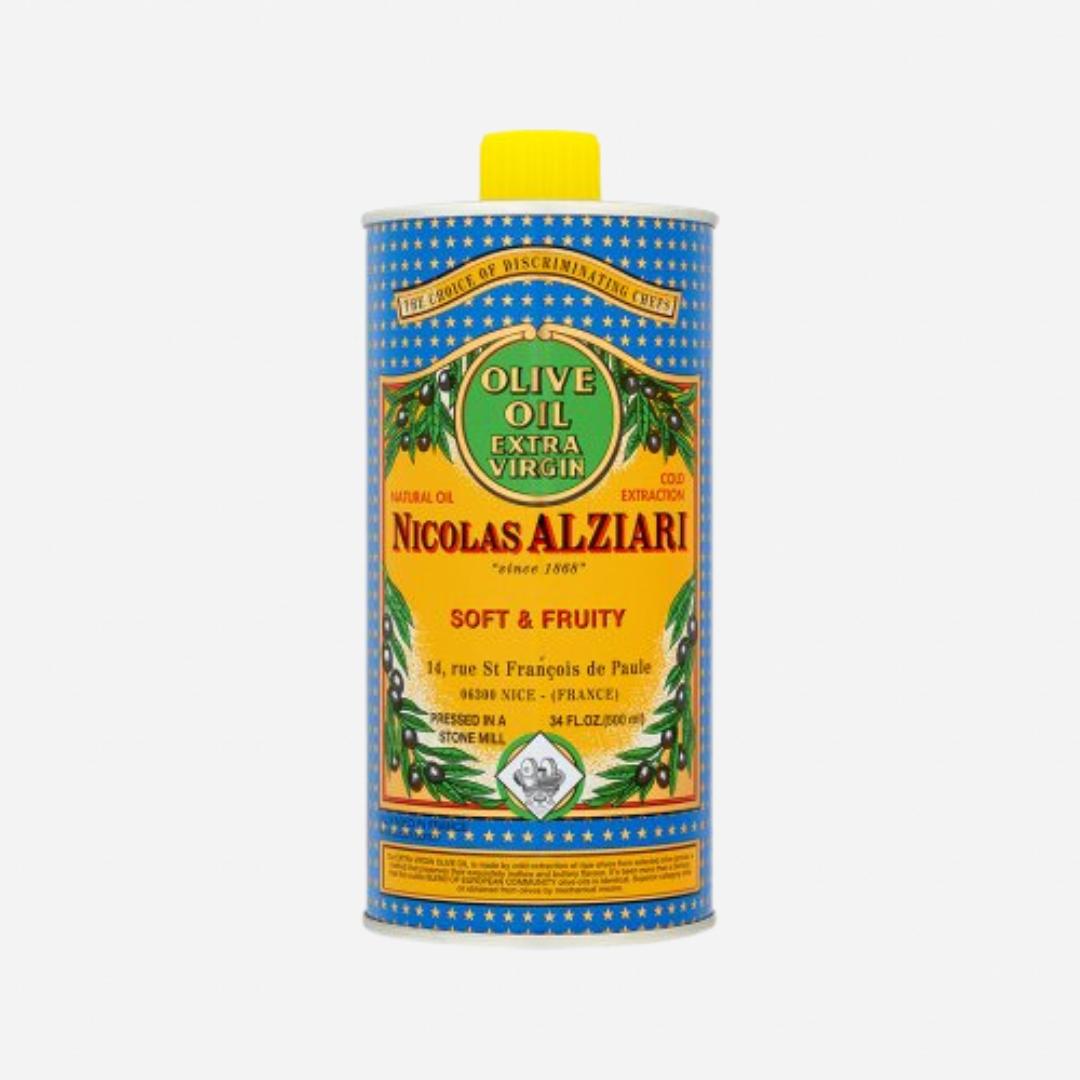Go into one of the UK's independent delis and you'll likely find a selection of the following products: Bold Bean Co. Queen Beans, Perelló olives, Torres crisps, a bottle of Chin Chin, and of course, a selection of handsome olive oils. Each of these products have much cheaper alternatives - a tin of butter beans can be picked up for around 70p from most major supermarkets - so what's driving this desire to spend so much more on something that can be bought for so much less?
Well, a chic store cupboard has become a status symbol, stocked with items that say something about the purchaser. A pantry full of Perelló suggests that its owner is in the know, that they have good taste–and in turn, these items have become ‘giftable’ goods. However, it is olive oil, above all others, that has become the host present du jour, cropping at many a trendy dinner party in 2024.
In mid-April, The Grocer published its findings on olive oil pricing. It found that the average price for a litre of supermarket own brand olive oil had grown by a staggering 42% over the course of a year. A combination of inflation, supply shortages, harvest theft, and a series of food fraud scandals in which fake olive oil was seized by local governments, had driven up the price, pushing olive oil into the realm of a luxury good.
And now that the product is so expensive, consumers are demanding more from it. Much like wine, people want to know what ingredients have gone into it, where the olives were grown and who's behind the brand. There are approximately 1,600 different varieties of olives, and thousands of different flavour profiles, with products available from across Europe, as well as the Middle East, Africa and the U.S.A. Plus, you can get a fantastic bottle of olive oil, which might last six months or so, for under £20. When it comes to wine, which will probably be gone by the end of that night, you can't access the same level of quality at that price point.
We spoke to olive oil producers Honest Toil who noted that “the idea of provenance has become more important for most people since we started 10-15 years ago. People really started to value that link to the grower, and knowing exactly where their ingredients were coming from. We've always been doing the same thing - keeping things simple, direct, unpretentious - but, perhaps unwittingly, these qualities weigh more on people's minds than when we started. In an era of mass-production, we're about as direct as it's possible to be; we're not some ‘brand’ peddling a faraway product, we live and breathe it."
It's not just provenance and price point that makes the idea of an olive oil bottle such an appealing present, but also the rise of the sober curious movement, too. Drinkaware, the alcohol education charity, found that the proportion of non-drinkers in the UK increased from 16% to 19% between 2011 and 2022. According to their study, “The highest prevalence of non-drinking was among adults aged between 16 and 24 whereas the lowest prevalence was among adults aged between 55 and 64 were the least likely (26% vs 14%).”
Graza, the beautifully branded olive oil makers have created a product designed to be refilled time and time again, removing packaging waste as far as possible. We asked them what made olive oil such an attractive gift. “Well, the ideal dinner guest would bring a bottle of Graza and a bottle of wine, but, we have heard from customers and investors that olive oil is very well received as a gift, especially because you can use it at dinner, and then still have some leftover, whereas a bottle of wine either disappears in 10 minutes or collects dust. EVOO has more of a 'gift that keeps on giving' vibe.” A bottle of olive oil, then, makes an excellent gift for everyone, whether a drinker or not.









